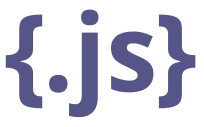Introduction to JQuery
JavaScript
JavaScript originated as a programming language initially designed to infuse logic and dynamism into the static confines of the Netscape browser. Its core function lies in shaping the behavior of websites, rendering them dynamic and interactive. This language was strategically developed to empower web developers with the capability to integrate executable code directly into their webpages, enabling enhanced interactivity and streamlined task execution. Unlike compiled languages, JavaScript operates as an interpreted language, where its syntax draws substantial influence from established programming paradigms like C++ and Java.
JavaScript Libraries

A library represents a reusable module of code designed to provide specific functionality. When it comes to JavaScript, a JavaScript library is essentially a collection of functions bundled within a single file, each tasked with accomplishing distinct and valuable tasks for your web page. The process is straightforward: you invoke a function from the library, supply relevant parameters, and the library handles its execution while returning control to you. Notably, a library functions as an abstraction layer, effectively shielding you from grappling with intricate implementation intricacies. In this context, jQuery is aptly characterized as a library—a collection of JavaScript code encapsulated into compact, reusable functions—rather than constituting an independent programming language in its own right.
jQuery
jQuery is a popular and widely-used JavaScript library that simplifies web development by providing a versatile set of tools and functionalities. It assists developers in creating interactive and dynamic web applications more efficiently by offering a concise syntax for tasks like manipulating the DOM, handling events, making AJAX requests, and animating elements. With its cross-browser compatibility and extensive community support, jQuery has played a significant role in enhancing the ease and effectiveness of front-end web development.